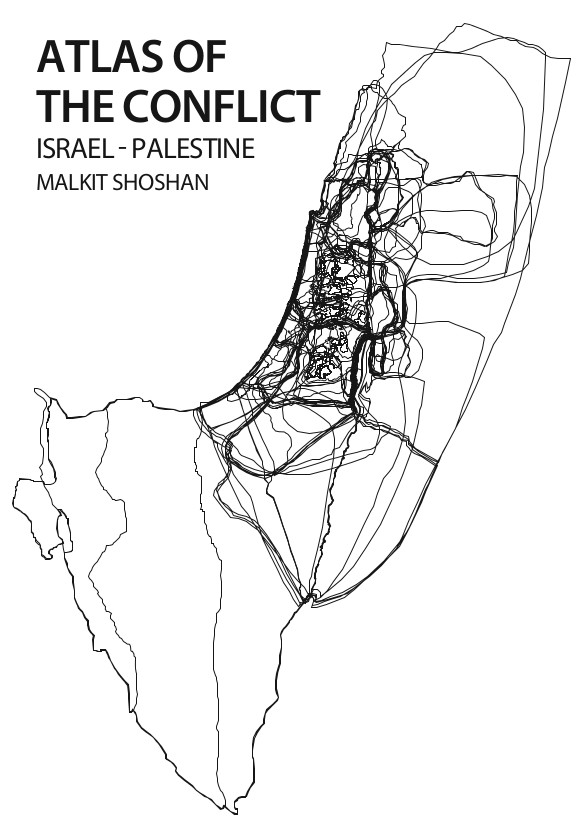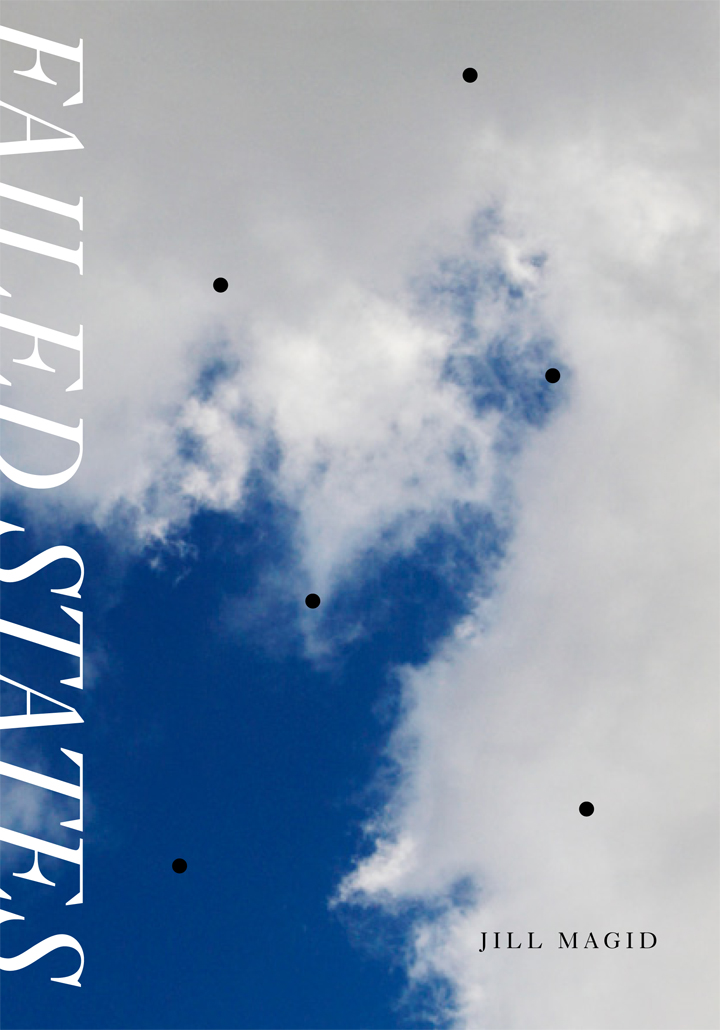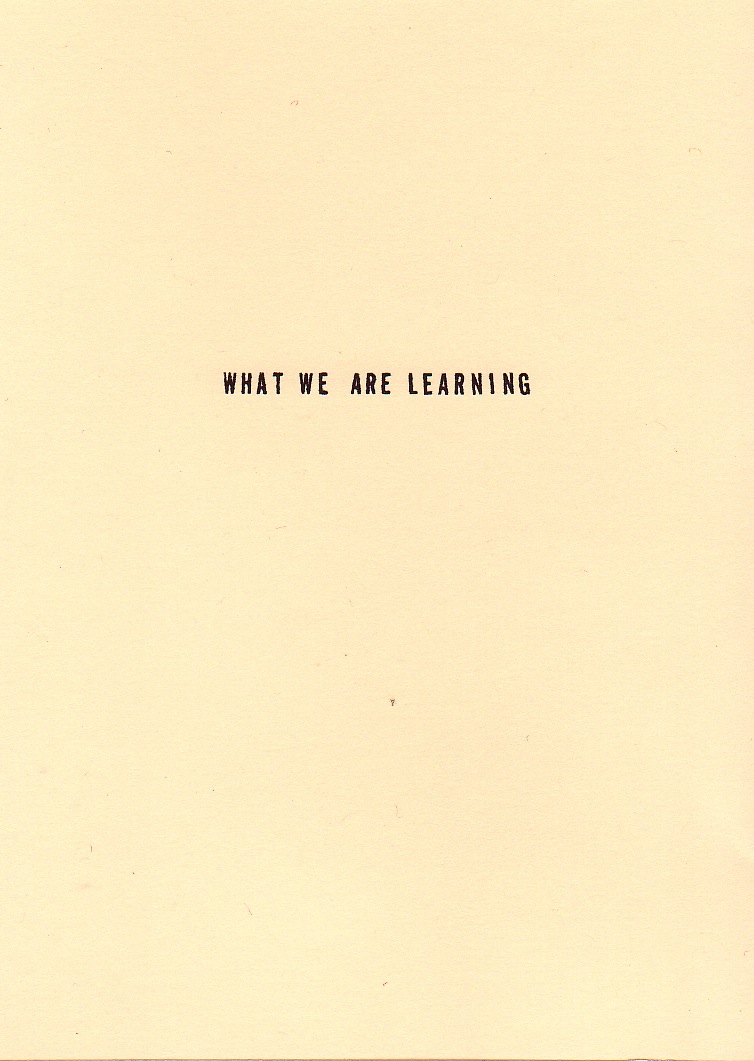Malkit Shoshan: Atlas Of The Conflict, Israel-Palestine (2010/2012)
Filed under book | Tags: · architecture, history, israel, palestine, politics, urban planning, war

The Atlas of the Conflict maps the processes and mechanisms behind the shaping of Israel-Palestine over the past 100 years. Over 500 maps and diagrams provide a detailed territorial analysis of the Israeli-Palestinian conflict, explored through themes such as borders, settlements, land ownership, archaeological and cultural heritage sites, control of natural resources, landscaping, wars and treaties. A lexicon, drawing on many different information sources, provides a commentary on the conflict from various perspectives. As a whole, the book offers insights not only into the specific situation of Israel-Palestine, but also into the phenomenon of spatial planning used as a political instrument.
In the early 20th century, waves of Jewish immigrants swept across the country of Palestine, seeking to impress onto it a new nation. It took over 50 years of local and international transitions to redeem the land; dressing it with uniformity, a new identity, a new landscape, a new people and a new culture while ignoring an existing landscape, an existing people, an existing culture and an existing nation.
In 1948 one nation celebrated its formal recognition by the international community and the other grieved amidst its ruins. This atlas of the Israeli-Palestinian conflict maps the processes and mechanisms behind the modification of the country during the past 100 years, both on a policy level and in its implementations on the ground. With over 500 maps and diagrams this is an indispensable reference book on the conflict. There are lessons to be learnt from the atlas on a broader front, from the withdrawal of the colonial powers in the early 20th century to the forced division of the Middle East and the ongoing wars and disputes over territory and resources.
Maps, plans and diagrams give a neutral, apolitical overview of the protracted conflict in Israel and Palestine.
The book won the Leipzig Art Book Fair’s Golden Letter award for “most beautiful book in the world.” Malkit Shoshan is an Amsterdam-based Israeli architect and founder/director of FAST (Foundation for Achieving Seamless Territory).
Originally published by 010 Publishers, Rotterdam, 2010
Publisher Publication Studio, Portland, OR, 2012
Jank Edition series
ISBN 9789064506888
478 pages
review (Yousef Munayyer, Palestine Center)
review (Esther Zandberg, Haaretz)
review (Régine Debatty, we-make-money-not-art.com)
more reviews
PDF (low resolution, 82 MB)
PDF (high resolution, 389 MB)
Jill Magid: Failed States (2012)
Filed under book, fiction | Tags: · military, secrecy, transparency

Failed States is an exploration of coincidence and poetics amid the barriers and bureaucracy of governmental power. While on a trip to research the history of snipers in Austin, Texas, artist Jill Magid witnesses a mysterious shooting on the steps of the State Capitol. Twenty-four year old Fausto Cardenas fires several rounds in the air before being arrested. The event becomes the background against which Magid, under the guidance of CT — editor at the Texas Observer and former embedded war correspondent for AP — starts her training to become an embedded journalist with the U.S. military in Afghanistan.
Magid’s non-fiction novel Failed States approaches the themes of transparency, secrecy and publicity through her personal desire to engage the war on terror and its media representation through becoming an eyewitness.
Publisher Publication Studio, Portland, OR
Coproduced by Z33 – House for Contemporary Art, Belgium; Honor Fraser Gallery, Los Angeles; Bucharest Biennial 5; and The Romanian Cultural Institute of Stockholm
ISBN 9781935662044
140 pages
Failed States installation by the artist
Comment (0)What We Are Learning (2010)
Filed under book | Tags: · authorship, learning, self-education

For two years (2008-2009), What We Are Learning issued a monthly compendium of brief reports from several dozen friends, telling what each of them had learned recently. This book gathers their reports into a uniquely compelling narrative that displaces the drama of the individual with the pleasures of the collective. What We Are Learning is one of the most provocative and successful experiments in dispersed authorship that we have seen.
Edited by Sam Lohmann, Colin Beattie and Alyse Emdur
Publisher Jank Editions, Portland, OR
ISBN 9781935662112
133 pages
editor (Sam Lohmann)
editor (Alyse Emdur)
publisher

